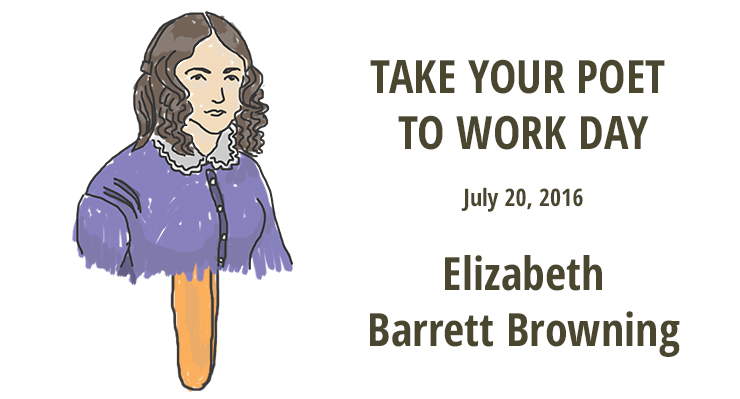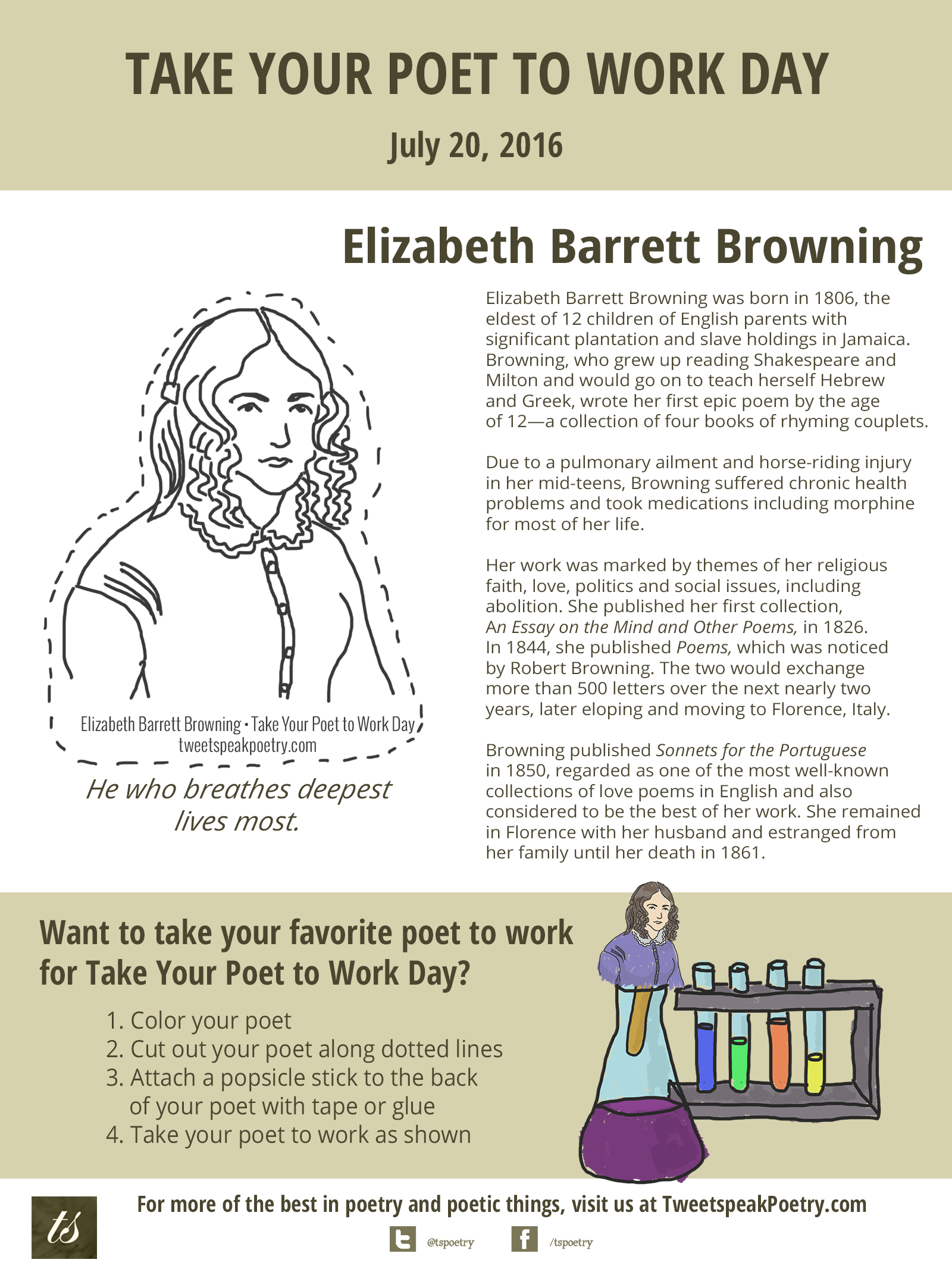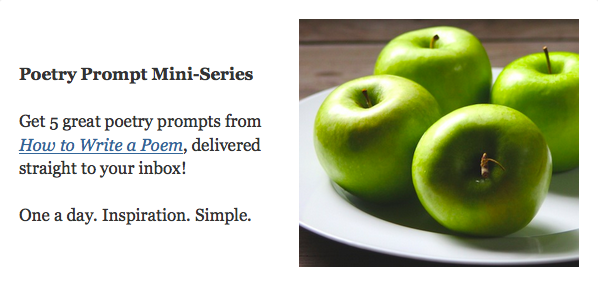Summer is one of the happiest seasons at Tweetspeak Poetry, because it is the season of Take Your Poet to Work Day (or, you know, to the beach). It’s one thing to start every day with a poem (we recommend it). But how great would it be to start your day with a poet? On Take Your Poet to Work Day, we encourage people around the world to take their favorite poet to work for the day.
Take Your Poet to Work Day is coming July 20, 2016
To help you play and celebrate with us, we’re releasing poets each week in a compact, convenient format you can tuck in your pocket, tool belt, or lunchbox. We started our celebration three years ago with Sara Teasdale, Pablo Neruda, T. S. Eliot, Rumi, Edgar Allan Poe, and the reclusive Emily Dickinson (for folks who work at home). We even released a full collection, The Haiku Masters: Matsuo Basho, Yosa Buson, and Kobayashi Issa. In 2014, we added Langston Hughes, Adrienne Rich, John Keats, William Butler Yeats, Christina Rossetti and the beloved 20th-century American poet, Sylvia Plath. And last year, we introduced the Bard of Avon William Shakespeare, beloved poet Maya Angelou, and iconic American poet Robert Frost, Russian poet Anna Akhmatova, Polish poet Wisława Szymborska, and America’s poet, Walt Whitman.
Because you can never have too many poets in your lunch box (or your desk drawer), we have a new collection of poets to release this year, including last week’s release, English Romantic poet William Wordsworth. This week, we’re delighted to introduce Elizabeth Barrett Browning.
Take Your Poet to Work: Elizabeth Barrett Browning
Get your own downloadable version of Take Your Poet to Work Day – Printable Elizabeth Barrett Browning that you can print, color and cut out for the big day.
Elizabeth Barrett Browning was born in 1806, the eldest of 12 children of English parents with significant plantation and slave holdings in Jamaica. Browning, who grew up reading Shakespeare and Milton and would go on to teach herself Hebrew and Greek, wrote her first epic poem by the age of 12—a collection of four books of rhyming couplets.
Due to a pulmonary ailment and horse-riding injury in her mid-teens, Browning suffered chronic health problems and took medications including morphine for most of her life.
Her work was marked by themes of her religious faith, love, politics and social issues, including abolition. She published her first collection, An Essay on the Mind and Other Poems, in 1826. In 1844, she published Poems, which was noticed by Robert Browning. The two would exchange more than 500 letters over the next nearly two years, later eloping and moving to Florence, Italy.
Browning published Sonnets for the Portuguese in 1850, regarded as one of the most well-known collections of love poems in English and also considered to be the best of her work. She remained in Florence with her husband and estranged from her family until her death in 1861.
How do I love thee? Let me count the ways (Sonnet 43)
How do I love thee? Let me count the ways.
I love thee to the depth and breadth and height
My soul can reach, when feeling out of sight
For the ends of being and ideal grace.
I love thee to the level of every day’s
Most quiet need, by sun and candle-light.
I love thee freely, as men strive for right;
I love thee purely, as they turn from praise.
I love thee with the passion put to use
In my old griefs, and with my childhood’s faith.
I love thee with a love I seemed to lose
With my lost saints. I love thee with the breath,
Smiles, tears, of all my life; and, if God choose,
I shall but love thee better after death.
— Elizabeth Barrett Browning
Get Tips on How to Read Sonnet 43 Aloud
Post and illustrations by LW Lindquist. Browning poem is in the public domain.

Click to get 5-Prompt Mini-Series
- Earth Song Poem Featured on The Slowdown!—Birds in Home Depot - February 7, 2023
- The Rapping in the Attic—Happy Holidays Fun Video! - December 21, 2022
- Video: Earth Song: A Nature Poems Experience—Enchanting! - December 6, 2022



[…] new collection of poets to release this year, including English Romantic poet William Wordsworth, Elizabeth Barrett Browning, Irish poet Seamus Heaney, and this week’s release, English poet and novelist Emily […]